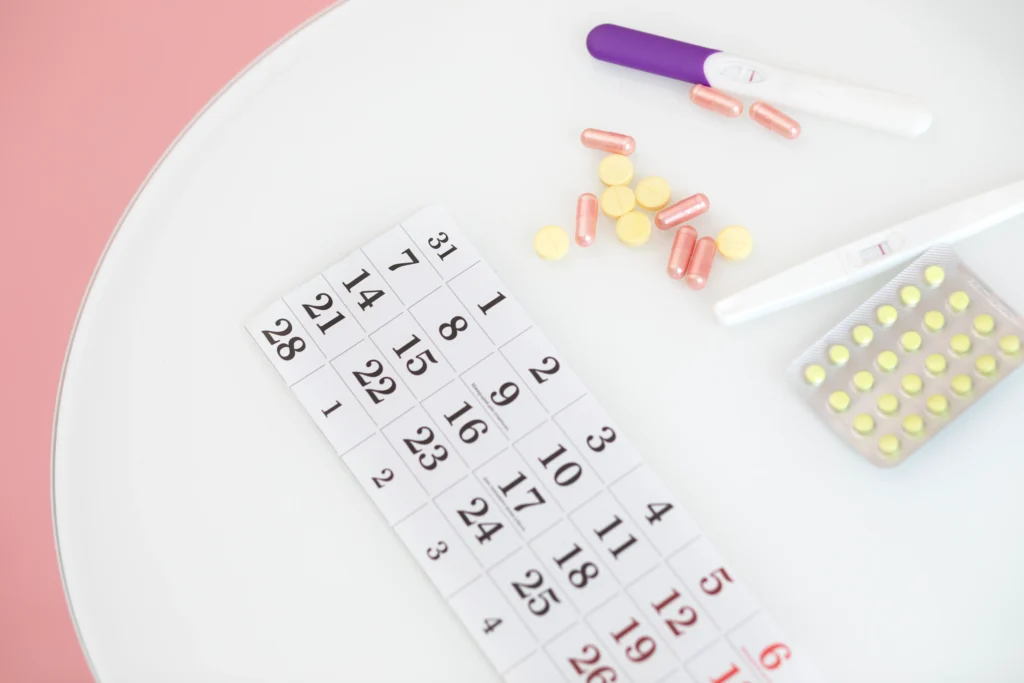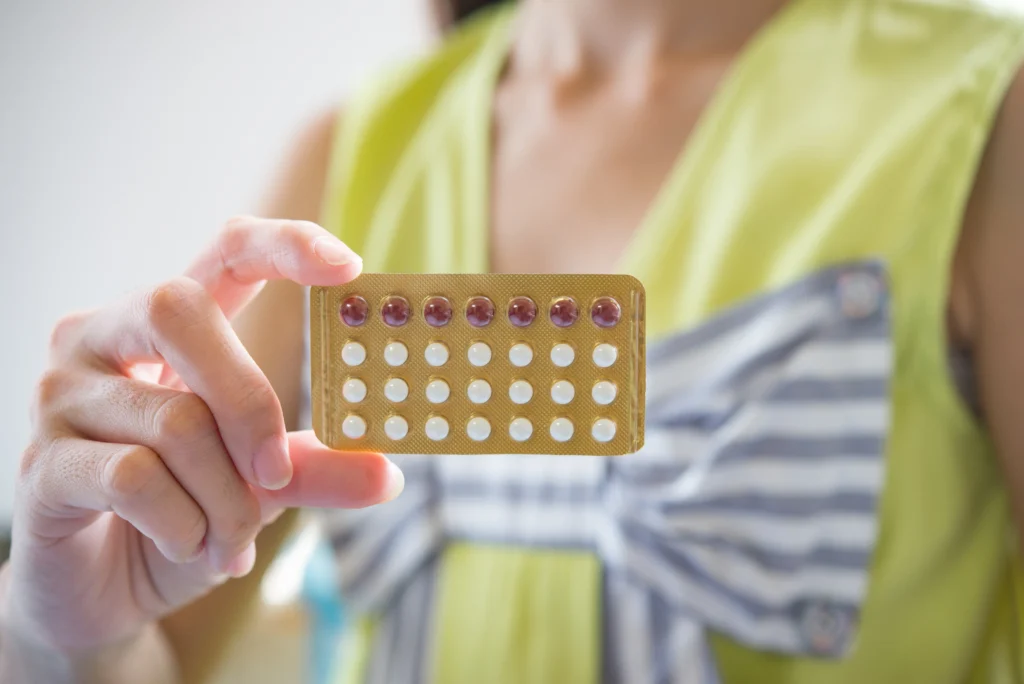Birth Control Pills: 7 Surprising Side Effects of Contraceptive Pills!
Certain contraceptive medications may cause unwanted mental health effects or vaginal dryness.
Discover seven rare, potential side effects of birth control pills.
For almost everyone, oral contraceptives are still one of the most preferred methods of Contraception. There are side effects with the pills; however, those side effects tend to depend on a person’s biology, health profile, and specific medicine taken, says Amanda French, MD, a pediatric and adolescent gynecologist with Massachusetts General Hospital, located in Boston.

Pill Tablets – Their Function and Mode of Action
Before we go any further, it’s important to highlight that there are numerous contraceptive options available today. Like all forms of Contraception, oral Contraception will always incorporate hormones, but not all contraceptive pills are the same.
Every pill’s formulation differs in the kinds and quantities of hormones it contains.
“Each time we give hormones, we are modifying something that is already occurring in the system, and there is a chance we will encounter side effects,” states Alexandria Wells, MD, an obstetrician-gynecologist and a Complex Family Planning Fellowship-trained physician practicing in Seattle and a fellow with Physicians for Reproductive Health.
Some birth control pills contain one sole hormone, progestogen, while others, “combination pills,” include both progesterone and estrogen. The combination pills are designed to prevent the ovaries from releasing an egg, or ovulation. ACOG states that the progesterone-only pill, referred to as the ‘mini-pill’, may also prevent ovulation, but does so erratically—around 40% of women utilizing this form of Contraception will ovulate. Progesterone-only pills thicken cervical mucus, hindering sperm from reaching an egg. In addition, luteal phase progesterone thins the uterine lining, making implantation difficult if an embryo is created.
“It seems that side effects are more prominent with the combined pill, the one that has both estrogen and progesterone, given the fact that you’re giving two types of hormones,’ adds Dr. Wells.
The same type of progesterone has been used in progesterone-only pills, which are disadvantaged by requiring exact timing with a daily dose.
The US Food & Drug Administration (FDA) approved Slynd (drospirenone), a new progesterone-only pill, in 2019. Slynd’s use of a different type of progesterone allows users to take the medication within 24 hours of a spaced dose, as opposed to needing the same dose timing regimen as the combination pill, Shrink, which requires strict daily dosing.
No pill is without problems, and options differ with the approaches each prescription takes regarding filling out an entire form, with a possibility of several submitted rounds of changes to the medications taken. These are some of the most common side effects associated with oral birth control and their management.
The two types of birth control pills are the combination pill, containing estrogen and a progestin, and the progestin-only contraceptive pill.

1. Yeast Infections
As with most breakout symptoms, Wells mentions that a singular occurrence of infection does not stem from the use of contraceptive medications. However, its chronic or recurrent forms may be due to the use.
While the complete reasoning remains unspecified, Wells proposes an explanation suggesting it stems from estrogen in the pill altering the vaginal microbiome’s pH and possibly promoting candida overgrowth. This yeast causes vaginal yeast infections.
Wells further explains that if the pill prescription continues to initiate persistent yeast infections, they can be managed by adjusting the dosage to a lower tier or switching to a different brand, allowing for accurate diagnosis and treatment by the clinician. Infection control is often accomplished with topical antifungal suppositories or tablets taken in capsule form.
2. Dryness of the vagina
As with most hormonal changes, the use of hormonal contraceptives can result in dryness of the vagina. Wells, however, points out that it is the easiest of all problems to resolve.
A clinician may recommend applying estrogen cream to the specified area of the patient, which may aid healing. Lowering the estrogen dosage could also help, depending on the type of progesterone the patient uses, though this may not work for many clients.
Wells points out that decreasing the hormone dosage may lead to spotting, an important consideration. Adjusting medication can effectively manage dryness of the vagina.
3. Decreased Libido
Several studies suggest that the use of contraceptive pills may be associated with lower sex drive or diminished arousal during sexual activity.
As identified in the Journal of Clinical Medicine, an extensive review based on 100 studies published in 2022 reported reduced sexual desire as the most prevalent side effect of having hormonal Contraception (Vandewiele et al., 2022). One of the studies reviewed noted that among 3,400 women using hormonal Contraception, 43% stated their sexual desire decreased while on the hormonal birth control compared to 12% of those who used non-hormonal birth control, for those who wish to regain sexual desire. At the same time, on the pill, there are other methods of Contraception like IUDs (intrauterine devices), which are said to have less impact on libido (Journal of Clinical Medicine).
4. Breakthrough Bleeding
The Office on Women’s Health states that hormonal contraceptives may offer the beneficial side effect of reducing the severity of heavy bleeding and painful periods.
However, it is the progesterone-only pills that are most likely responsible for complex bleeding or spotting between the menstrual cycles.
A study published in 2023 in Breastfeeding Medicine noted that 40 percent of individuals taking progesterone-only pills had breakthrough bleeding compared to just 10 percent in those taking combination pills.
5. Breast Tenderness
A review published in Contraception in 2023 analyzed two clinical trials with over 3700 women using progesterone-only birth control pills. Out of the sample of approximately 1800, or about 4%, reported breast tenderness, which was the second most commonly reported side effect. Tenderness can occur on or around the nipple and is described as soreness in different areas of the breast.
As with the other potential effects of birth control pills, Wells explains, breast tenderness is generally associated with some form of hormonal imbalance within the body. Discomfort may lessen when changing to another method or a non-hormonal form of birth control.
6. Changes In Mood
The impact of a hormonal birth control method on a person’s mental well-being is less documented than its physical effects, as is the case for all other forms of such birth control.
As French observes, hormonal birth control (BC) may affect mental well-being, yet it is difficult to ascertain whether it is the BC that triggers these effects.
A 2023 study in the Contraception and Reproductive Medicine journal included 188 participants who had previously used hormonal Contraception. More than 43% of these participants reported experiencing mood changes at some point. Individuals with a personal or familial history of the condition were two times more likely to report mental effects compared to those without such a history.
In a study conducted in 2023 by Epidemiology and Psychiatric Sciences with over 264,000 women from the UK Biobank, researchers reported a greater prevalence of depression in the first two years of contraceptive pill use. Teenage users of Contraception were 40% more likely to experience depression compared to older users.
In the case that a patient has some form of underlying mental health disorder before starting hormonal contraceptives, French suggests documenting changes in mood and contacting their physician if any changes occur.
If receiving care from a mental health specialist, she explains that to ensure maximum coordination for those providers, it is better to update them about new medications so they can track any pertinent changes.
Thus, French offers this suggestion: “There are many choices for hormonal contraception, and, for that reason, if someone begins a new one and feels it is affecting their mental health, we can alter it.”
7. Blood Clots
As with all combination birth control pills, blood clots are a rare but potentially dangerous side effect.
The reassuring point is that progesterone-only contraceptive pills do not have this risk, as Wells directs.
In her observations, Wells indicates that those with a history of blood clots, high blood pressure, migraine with aura, or even lupus, some of these risk factors, will have more severe adverse effects with the progesterone-only pills.
It could serve you well to learn about the signs of venous thromboembolism (VTE) and deep vein thrombosis (DVT) so that if you suspect a blood clot, you can act fast to prevent the damage with combined birth control pills.
The Bottom Line
Although these side effects can indeed be life-threatening, taking birth control pills can still offer effective Contraception. They, however, will most likely lead to several unwanted effects due to hormonal Contraception.
Some of the unwanted effects can be mood swings, vaginal dryness, bleeds, low libido, and even tenderness of the breast.
For your convenience and to lessen your discomfort, it is best that you speak to your physician so that you can explore treatment plans tailored to the specific side effects and complications you experience. Other suggestions can be made where fewer side effects due to contraceptive methods are experienced.
Unlock Your Best Sex Life, Solo or Together.


